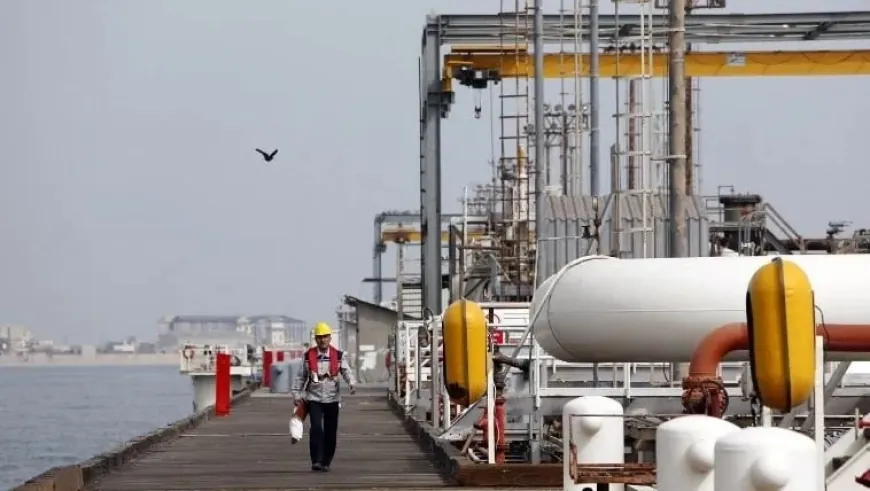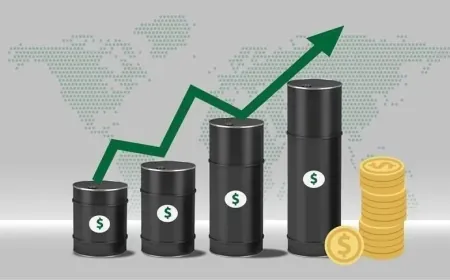Oil Nears $78 as U.S. Threatens Iran Strike Over Gulf Crisis
Brent surges as U.S. weighs military response to Iran. Strait of Hormuz in focus as traders price in $8 war risk ahead of potential weekend escalation.

Oil prices pushed higher on Thursday, with Brent crude approaching $78 per barrel. The uptick marks the second straight day of gains, driven by heightened concern over a possible military response from the United States to rising tensions between Israel and Iran. Traders are responding swiftly to geopolitical developments, positioning for potential supply disruptions in the region.
Energy futures have shown increased bullish activity, with traders favoring near-term contracts and pricing in premiums. That shift reflects anxiety that the conflict could widen and threaten critical crude flows, particularly from the Gulf. Price volatility has also picked up sharply, suggesting investors are hedging against sudden shocks heading into the weekend.
Trump Keeps Market Guessing on Possible Iran Strike
President Donald Trump met with top national security aides on Wednesday as his administration considered options for responding to Iran’s role in recent Middle East unrest. Although reports suggest a military response plan is already in place, Trump has yet to give the green light.
Pressed by reporters, the president delivered a cryptic response: “I may do it. I may not do it.” Sources close to the matter said Trump is holding off on final authorization to give Tehran time to meet certain undisclosed conditions. The ambiguity has added to market jitters, as energy traders remain unsure whether diplomacy or force will ultimately guide U.S. policy.
Brent Gains Fueled by War Risk, Not Supply Disruption
Roughly $8 of Brent crude’s current value is being driven by political risk—not physical shortages. That’s the consensus across trading desks this week, where market participants say the real threat isn’t about oil flow, but what happens if the U.S. hits Iran.
“There’s no break in supply, no tankers stopped — this is pure war premium,” said one London-based oil trader. “But it’s very real, because if missiles start flying, that premium could double overnight.”
The nervousness is reflected in options markets, where call buying has picked up sharply, and in the widening spread between near-term and forward contracts. While the Strait of Hormuz remains open, risk managers say the price is already factoring in the possibility of disruption — even if it's just one missile too close to shipping lanes.
Strait of Hormuz Not Blocked — But Not Ignored Either
The Strait of Hormuz remains open, and tanker traffic is flowing normally for now. But that could change quickly. The narrow waterway, which handles about one-fifth of global oil exports, has long been seen as a geopolitical flashpoint.
Although there’s no evidence that Iran is planning to shut down or disrupt the strait, U.S. and European energy officials are keeping close watch. “We don’t believe it’s an imminent risk,” said Mike Sommers, President of the American Petroleum Institute. “But it’s the kind of scenario you have to prepare for, because the economic consequences would be enormous.”
Shell Warns of Ripple Effects on Global Trade
Multinational energy firms are already running contingency planning. Shell CEO Wael Sawan, speaking at the Japan Energy Summit in Tokyo, said any disruption in the Strait of Hormuz would have far-reaching consequences not just for energy markets, but for global trade.
Sawan confirmed that Shell has prepared alternate logistics and routing strategies in case tensions escalate. “We don’t expect a disruption, but we can’t rule it out either,” he said. “Given how much crude moves through that corridor, a shutdown would be felt worldwide almost immediately.”
Markets on Edge Ahead of Possible U.S. Strike
Oil traders are heading into the weekend on high alert, with market sentiment dominated by the unresolved U.S. response to Iran. The lack of clear direction from President Trump has amplified anxiety across trading floors, especially with signals pointing to potential military action in the coming days.
Positioning in crude futures has turned cautious. Many desks have scaled back exposure or are hedging aggressively ahead of any possible escalation. “We’re not trading oil—we’re trading war headlines,” said one veteran energy trader in London. “Any confirmed movement—military or diplomatic—will trigger immediate re-pricing.”
Insurers are also quietly adjusting risk premiums for vessels passing through the Strait of Hormuz, while corporates with Gulf-linked energy contracts are tightening their hedging strategies. Market participants say the next 48 hours could be decisive not just for oil prices, but for broader risk sentiment across commodities and currencies tied to Gulf stability.
Also Read: Oil Rises 8% on Israel-Iran Conflict as Strait of Hormuz Oil Route Faces New Risk
|
Follow iShook on Social Media for More Tips and Updates! |































































